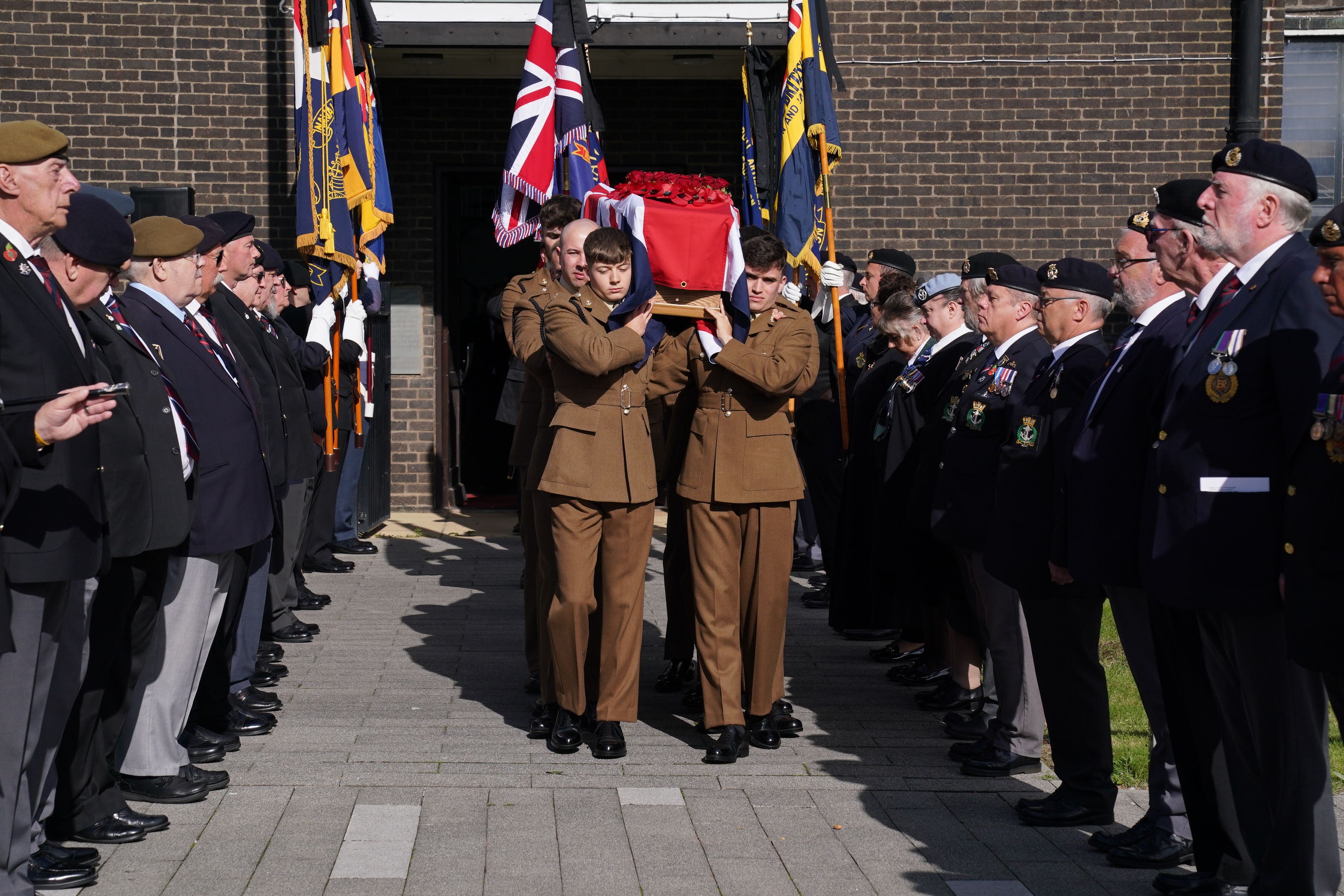Funeral held for D-Day veteran who helped liberate Bergen-Belsen camp
Donald ‘Don’ Sheppard died at the age of 104.

Your support helps us to tell the story
From reproductive rights to climate change to Big Tech, The Independent is on the ground when the story is developing. Whether it's investigating the financials of Elon Musk's pro-Trump PAC or producing our latest documentary, 'The A Word', which shines a light on the American women fighting for reproductive rights, we know how important it is to parse out the facts from the messaging.
At such a critical moment in US history, we need reporters on the ground. Your donation allows us to keep sending journalists to speak to both sides of the story.
The Independent is trusted by Americans across the entire political spectrum. And unlike many other quality news outlets, we choose not to lock Americans out of our reporting and analysis with paywalls. We believe quality journalism should be available to everyone, paid for by those who can afford it.
Your support makes all the difference.A funeral has been held for a D-Day veteran who helped liberate the Bergen-Belsen concentration camp.
The funeral for Donald “Don” Sheppard, who died aged 104, was held at St Martin’s Church in Basildon, Essex, on Friday.
The coffin was escorted to the service on a gun carriage, with military personnel forming a guard of honour.
Sheppard, a dispatch rider for the Royal Engineers, landed on Juno beach on June 6 1944 in a landing ship tank.
Some 156,000 British, American and Canadian troops launched from the sea and air on to French soil in one of the most successful military operations in history, which this year celebrated its 80th anniversary.
Speaking to the PA news agency in 2019, Mr Sheppard, from Basildon, described D-Day as a “waste of life” but recognised the landings as being “so important”.
He said: “I know we had to defend ourselves … but young guys like me 20, 21, who never lasted five minutes, some of them got killed before they got off the boat.
“Tragic, absolutely.”
When he arrived at Juno beach around 4.30pm, Mr Sheppard said the Germans had “really got the distance and shells were coming over like rain”, with battleships also firing over their heads.
“We lost quite a few guys,” he said. “We (the survivors) were lucky really.”
After breaking through Nazi lines in the August, he continued through to Belgium, Holland and eventually Germany – including to the Bergen-Belsen concentration camp.
Speaking of his experience, Mr Sheppard said: “I shall never forget that for the rest of my life. How one human could do that to another.”
The only wound he received during the war was a cut to his leg as he took cover in a ditch as German bombs fell.
After medical tests and scans some seven decades later, it was discovered he had a sliver of shrapnel sitting in his lung.
Mr Sheppard said the piece of metal had never caused any health problems.